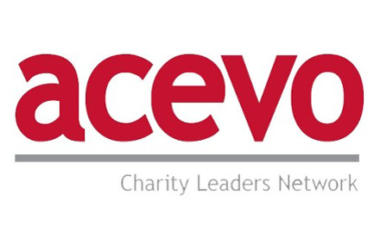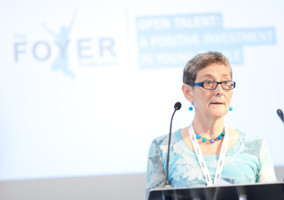Acevo has announced the recipients for a two-year programme of support and development, created in memory of Jane Slowey, former chief executive of the Foyer Foundation.
It has named the eight women chosen to be part of the first cohort of the Jane Slowey memorial membership programme which will aim to provide expert support, guidance, advice and mentoring for women who are aspiring chief executives, or are in their first two years as a chief executive for a charity or social enterprise.
The eight successful applicants are:
- Carol Akiwumi, chief executive, Money4Youth, an organisation that equips individuals and grassroots organisations in the UK and Africa with financial education and entrepreneurial skills.
- Emily Banks, founder, Stack Recruitment, a micro-specialised recruitment agency that aims to get young autistic adults into sustainable employment.
- Ciara Davies, chief executive, Metro Moneywise Credit Union. Davies leads an all-female team and wants to grow the business whilst implementing a digital transformation.
- Ropinder Gill, chief executive, Lymphoma Action, an organisation delivering specialist services to people affected by lymphoma. Gill is responsible for developing, implementing and monitoring strategy for the effective delivery of operational and strategic goals.
- Karen Pearse, director, PSI Volition, offers infrastructure support to the health and care third sector in Leeds. Pearce is the lead officer representing the Leeds mental health and physical and sensory impairment third sector in joint work and discussion with the statutory sector in strategic planning.
- Jilna Shah, co-director, Migrants’ Rights Network. Shah manages a project that coordinates campaigns and advocacy aimed at dismantling the hostile environment for migrants in London.
- Precious Sithole, chief executive, Social Practice. Sithole started her social enterprise after realising that there were significant issues within the charity sector including underrepresentation of BAME individuals and falling levels of public trust. She aims to work with charities to advance responsible organisational practices to improve the sector.
- Tara-Jane Sutcliffe, director, UNA Exchange. Sutcliffe’s first year in the role has involved securing significant funds to ensure the charity’s continuing viability as well as restricting to address high staff turnover. Sutcliffe is responsible for risk, performance and financial management, working closely with trustees to ensure compliance and good government.
The programme prioritises applications from female leaders under 45, from a BAME background and/or with a disability, which is “in keeping with the passions and priorities Jane Slowey held in her working life”.
The programme received 116 applicants in total between 3 September and 30 November, and these principles have been reflected in the successful applicants, half of whom are from a BAME background, half have a disability whilst three quarters of the cohort are under 39.
The programme also raised funding of £15,743 through a dedicated MyDonate page, while an additional £10,000 was granted by the Big Lottery Fund.
Each successful applicant will receive:
- Full Acevo membership
- A mentor
- Four learning/networking/training days with fellow cohorts
- Two annual dinners with fellow cohorts
In addition to this the recipients of the first cohort will become the mentors of the second cohort, which starts in 2021.
The application shortlist was compiled and approved by the steering committee formed by Rosie Ferguson (CEO, Gingerbread), David Gold (CEO, Prospectus), Bethia McNeil (director, The Centre for Youth Impact), Tokunbo Ajasa-Oluwa (CEO, The Foyer Foundation), and Vicky Browning (CEO, Acevo).
Vicky Browning, chief executive of Acevo said: “It was both inspiring and humbling to read all applications for the Jane Slowey memorial programme. The selection panel was particularly impressed by the willingness of the candidates to express their vulnerabilities as well as their aspirations and ambitions.
“The quality of the submissions was extremely high and it was very difficult to decide between so many talented candidates. The volume of applications we received for the programme indicates a real need for more support for women leaders.”
|
Related articles










